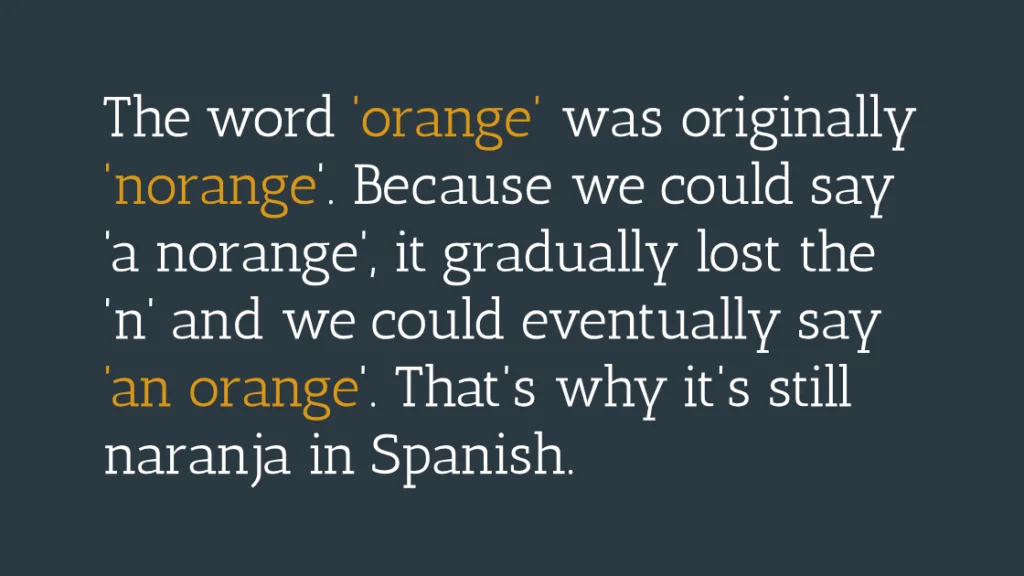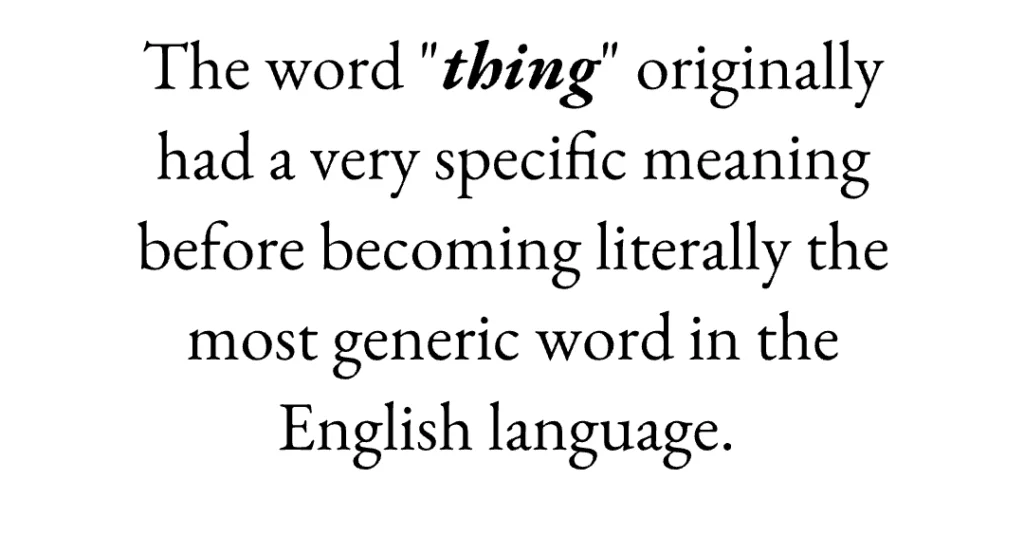The following facts were gathered from the input that was provided by our followers at The Language Nerds. Enjoy!
The word ‘orange’ was originally ‘norange’. Because we could say ‘a norange’, it gradually lost the ‘n’ and we could eventually say ‘an orange’. That’s why it’s still naranja in Spanish.
In Spanish /s/ cannot stand alone at the beginning of a word. It is always an /es/ blend like “espalda” or “esta”. This is why Spanish speakers add an /e/ to the beginning of /s/ words in English. For example “e-sprite” for sprite.
“Facetious” is the only word in the English language where all the vowels appear in the correct order.
“Porn” is a Thai-English false friend. When you say “porn” in a Thai context, it means a sacred blessing. So a number of Thai people’s names contain “porn.”
The word “girl” in English was not initially used to refer to a specific gender. It used to mean “child” or “young person” regardless of the gender.
Italian has “Ti voglio bene” as a fixed expression you would say to anyone you care about in a non-romantic way (parents, relatives, friends) and it could be translated as “I want you to be fine.”
The word “latte”, which English speakers use when referring to coffee with milk, actually means milk in Italian, so if you go to Italy and order “latte”, you get milk. If you want coffee with milk, you should order a cappuccino instead!
“Mayday” that you hear pilots say when their plane is going down in movies means help me in French. We spell it the way it sounds but the French spelling is m’aider and it’s pronounced the same.
Romanian is the only romance language that has the definite articles at the end of the noun.
In Swedish, gift means both married and poison.
“Panini” is the plural word for “sandwich” in Italian. Next time you want to order one, ask for “a panino” not a “panini.”
Hiligaynon has passive imperatives. In other words, you give commands in the passive voice.
Just for fun facts:
- The umbrella was originally going to be called just brella but the inventor hesitated.
- The correct expression is: “I could NOT care less.” If you could care less, that means you do actually care.
- “Results are out” is used for exam results. “Results are in”is used for election results.
- It is “based ON,” not “based off of.”
- The New York City accent came about from the Dutch settlers making fun of the British accent. That’s why they drop the R as in “New Yawk.”
- Irregardless is NOT A WORD!
- In the Dutch language, “Dutch” means German.






